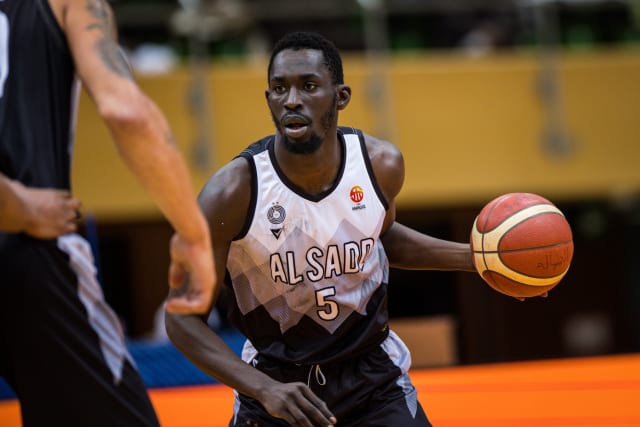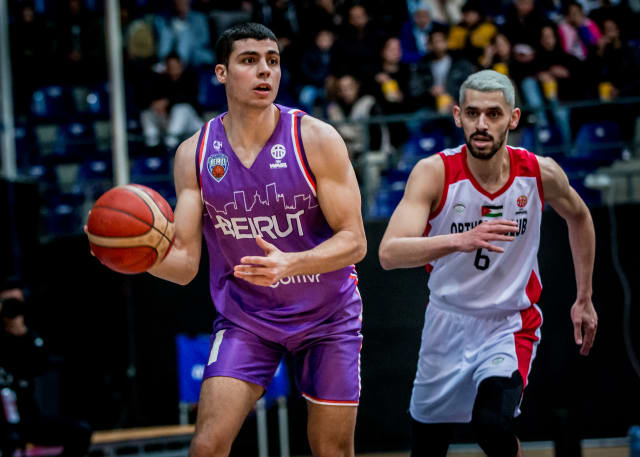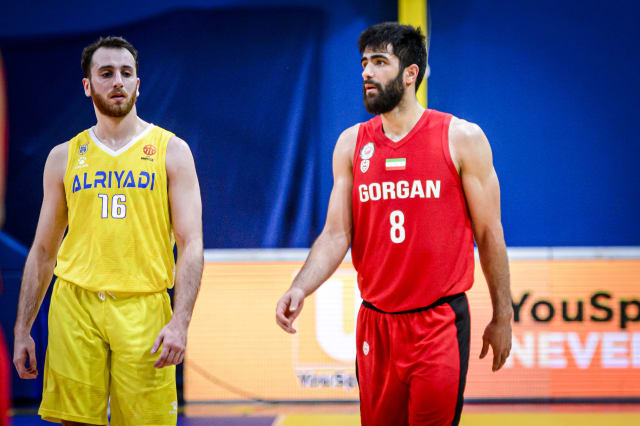Iron sharpens Iron: How national teams benefit from FIBA WASL
BEIRUT (Lebanon) - In the upcoming International Window for Men's Basketball, we might get to see how playing in FIBA WASL has benefitted or can continue to benefit these players and their national teams.
BEIRUT (Lebanon) - The midway point of the Group Phase in the inaugural league seasons of FIBA WASL - Gulf and WASL - West Asia has passed. This means that all the teams have had the chance to welcome foreign clubs onto their home court, travel to different countries to play league games, and face each other in different settings.
The competition will take a break in February for the International Window for Men’s Basketball. Many of the players that have been putting their talents on display for their clubs will get the chance to play for their national teams, whether it is at the 6th window of the FIBA Basketball World Cup 2023 Asian Qualifiers or the Second Round of the FIBA Asia Cup 2025 Pre-Qualifiers.
There, we might get to see how playing in FIBA WASL has benefitted or can continue to benefit these players and their national teams.
Frequency
As champions or runners-up of their local leagues, the majority of the clubs that are playing in FIBA WASL generally play 1-2 games per week in those local competitions. In the past, these local league games have helped in keeping players sharp and well-conditioned while in between national team duties. They also served as a platform for players to showcase their development and improvement.
By playing in these FIBA WASL games, the players get more games added to their schedule where they are able to play in a high level of competition against high-level players more frequently.

Babacar Dieng (Al Sadd / Qatar)
Through these additional games in the schedule, we've been able to see players like Sajjad Pazrofteh (Gorgan / Iran), Farid Arslani (Zobahan / Iran), and Babacar Dieng (Al Sadd / Qatar), and many more get more chances to shine and develop their games. Chances which they've made the most out of so far as Pazrofteh is averaging 8.3 points and 7.8 rebounds per game while Dieng is starring for his team with averages of 20.3 points, 12.0 rebounds, and 3.8 assists per game.
Change of Scenery
Aside from getting to play more games in the schedule, the players playing in FIBA WASL also get the chance to play against a different set of opponents than they are used to.
While the intense challenges in each of the respective domestic leagues have proven to benefit the growth of the players, being able to break away from playing against teams, players, and playing styles that they are familiar with allows these players to grow and be more prepared for the national team stage as well.
Where Beirut Club’s Omar Jamaleddine might have developed a skill set that allowed him to be effective against teams and players in the Lebanese league, being exposed to games against Orthodox Amman (Jordan), ZobAhan (Iran), and Al-Ittihad Ahli (Syria) provides him with the chance to see other areas of the game which he could work on.

Whether it’s adjusting to the defensive intensity of teams from Lebanon, the ball movement of teams from Kuwait, the pace of teams from Syria, or the physicality of teams from Iran, there is a variety of challenges for players to adjust and adapt towards.
If the players playing in FIBA WASL can rise up to the challenge and learn from these clashes, they can definitely rise the potential of each of their respective national teams with what they add to their games.
New Challengers
Not only are these FIBA WASL players experiencing different playing styles, but they are also getting the chance to go up against a wide range of players. From a game-to-game basis, players like Gorgan’s Behnam Yakhchali can go from playing against Al Riyadi’s Wael Arakji to Alkaramah’s Isshak Oubeid to Al Naft’s Kararr Hamzah, all of whom are among key players on their respective national teams.

National team stars also have the chance to go up against each other while playing for their clubs, continuing clashes that were sparked during national team play. Fun examples that have already occurred so far in the season include matchups like that between Shabab Al Ahli’s Qais Omar Alshabebi and Al Hilal’s Mohammed Alsuwailem who have had exciting games against each other playing for UAE and Saudi Arabia, respectively.
View this post on Instagram
Iron sharpens iron, as they say.
Not only are these Asian talents sharpening their skills against other regional talents. With FIBA WASL allowing teams to register a number of foreign players, the local players on each team get the chance to go up against other high-level talents from around the world.
Arakji has had to go up against Edgar Sosa, a high-level scorer who has racked up points for the Dominican Republic in the World Cup. The post players of opposing teams have to face Alkaramah’s Chris Obekpa, who plays for the Nigerian national team. Teams that play against Al Sadd not only have to contain some of Qatar’s best talents, but they also have to guard Vander Blue, a guard who previously played for USA at the youth national team level.
With the abundance of talented players both from each respective country and elsewhere in the world, the players playing in WASL are presented with the great opportunity to become better players by facing these opponents.
And that provides each of their respective national teams with a deeper talent pool to utilize.
FIBA